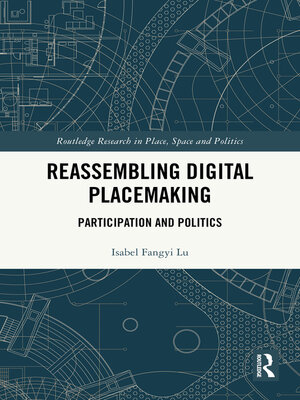Reassembling Digital Placemaking
ebook ∣ Participation and Politics · Routledge Research in Place, Space and Politics
By Isabel Fangyi Lu

Sign up to save your library
With an OverDrive account, you can save your favorite libraries for at-a-glance information about availability. Find out more about OverDrive accounts.
Find this title in Libby, the library reading app by OverDrive.



Search for a digital library with this title
Title found at these libraries:
| Library Name | Distance |
|---|---|
| Loading... |
This book presents digital placemaking as a new testing ground for urban democracy. It explores the participatory practices of digital placemaking and their implications on blurring formal and informal boundaries of decision-making and urban politics.
Drawing on examples from Australia, China and Taiwan, the book examines how contemporary cities are witnessing an era when digitality becomes a mode of placemaking and participation becomes an urban condition. Such developments manifest as urban activism, creative branding, tech placemaking and digital governance that trigger changes in urban engagement and politics. This book views digital placemaking through an assemblage lens to demonstrate how it can be a relational site of contentions and collaborations among civil society, industries and governments without observance of strict boundaries. Contrary to an often binary and zero-sum reading of urban politics, this book advocates for a tripartite assemblage model of urban politics that is neither hierarchical nor deterministic. This book proposes an ouroboros model as a systematic approach that conceptually anchors digital placemaking studies to the nexus of urban institutions and digital technologies. It reconceptualises urban politics as a relational process of nuances, contingency and complexity in the flux of cosmopolitan power movements and inquiries. Ultimately, the book develops the notion of socio-technical natality to counter the myth of tech inevitability and instil a thesis of hope and change.
This book will interest researchers, policymakers and professionals in urban studies, media studies, cultural studies, urban communication, creative placemaking, community engagement, urban advocacy and urban governance.







